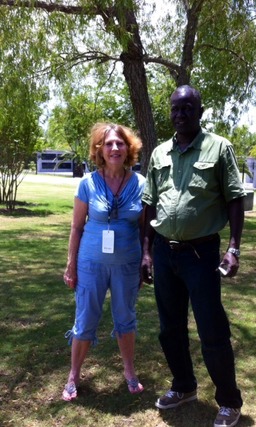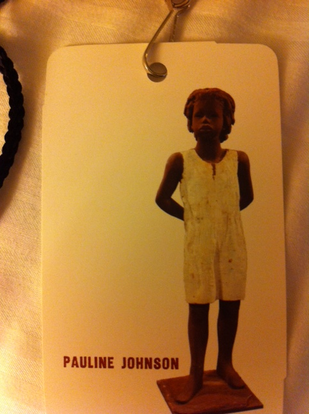Some, like Ashland Belle Helene, are not open to the public. John’s family sold it to an oil company several years ago. However, others such as Houmas House, Evergreen, Laura Plantation, Oakes Plantation, San Francisco are open for tours. Some serve lunch and dinner.
The tours are worth your time. Every plantation has its own personality. Being on River Road is like being in a foreign country, different from raucous New Orleans and unlike any other place in the United States. A riverboat cruise on the Mississippi and a tour in Cajun Country is great fun too. Well worth adding extra days to your trip to the “Big Easy.”
A special thanks goes to Dr. Abrahima Seck, Director of Research of the Whitney Plantation. See the picture of us. This plantation is unlike any of the others. It is a true view of slavery because there are statues and memorials of slaves of that time. The picture of the child is one of a slave girl on my entry lanyard. Every lanyard has the photo of a different child and a short bio on the back.
During the depression, there was a movement to create a living history. Former slaves,who were at that time in their 80’s and 90’s, were interviewed. Their recorded voices became a part of the quotes on view at Whitney. The real story of slavery as told by actual former slaves causes a person to pause and question humanity, our humanity. Denial, the great deceiver.
Dr. Seck was instrumental in clarifying the role of indentured servitude of slaves on the plantations of French owners, who were businessmen and considered slaves an asset. They provided medical care and encouraged a community of slaves on their plantations, including marriage and having children. They did not beat their slaves, as we are so used to seeing. In Bitter Sugar, I attempt to show this side of slavery that has been neglected in most historical accounts of slavery. Indentured servitude or slavery, the result is the same - keeping human beings without a sense of freedom and limited opportunity to improve their condition as human beings.



 RSS Feed
RSS Feed
